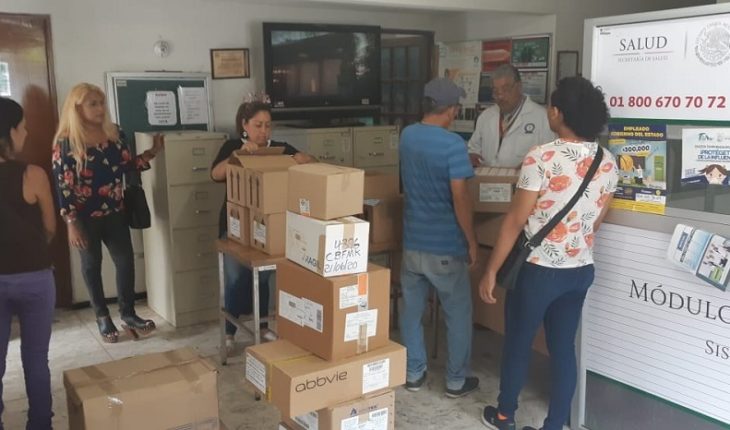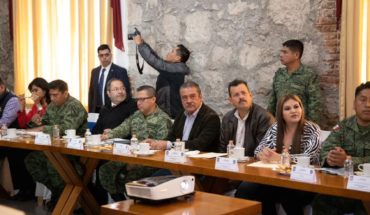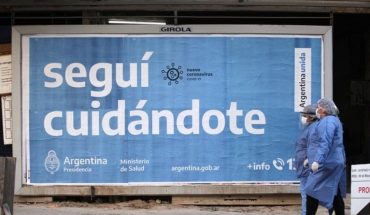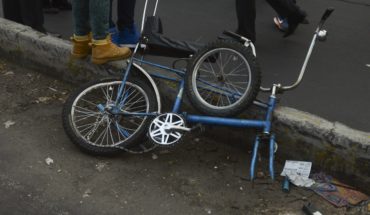Last Tuesday came the call that Joshua had been waiting for days. From the outpatient Center for the prevention and care of AIDS and sexually transmitted infections (CAPASITS) in Tampico, Tamaulipas, where he lives, he was marked to warn him that he could go to pick up his HIV medication.
He had two weeks not taking his meds and was terrified of the possibility of attacking him what is known as an opportunistic infection. It was almost 3 pm when he was marked, just when they close the distribution of drugs in (CAPASITS).
It was until Wednesday when he finally had in his hand the box of Atripla, the drug he takes to keep HIV in his body and avoid falling into an AIDS phase, as it is known when an opportunistic infection, or several , exploit the deficiencies of the inhume system, caused by the virus, to attack.
READ: My nightmare is to run out of drugs: HIV-positive people report shortages
Joshua, who is dedicated to advertising on Facebook, stayed a while without his medication for the shortage of antiretrovirals that was presented in several states of the country, including Tamaulipas, for the delay in the purchase of the same by the federal government , and which mainly affected the users of the Popular insurance and, therefore, of the CAPASITS.
The publicist says that after those days without medication it’s not quite right.
“On May 7th I was taken a blood sample to see how it was, and on Thursday 9th I got the results. I took them immediately to the center doctor and it turned out that I have Hepatitis B. But according to him he’s on a very low level, and there’s no risk. He told Me that with the same Atripla was going to be the treatment, when I could take it. ”
Joshua says that when he received the drug he did not have any medical examination. “They didn’t check us out. There was a huge row and we only got the medicine. My medical appointment was rescheduled just for me in a month, so I’m just going to go back and take the Atripla and wait. ”
For the publicist these days will be of anxiety, not only by knowing with Hepatitis B, even at a very low level, also by the uncertainty of not knowing if within a month will be your medicine available in the CAPASITS of Tampico, or not.
“Yesterday the director of the center, Juan Beltrán Saldaña, told us, and confirmed in an interview with local media, which is only for a month, which only made the purchase for that time, as an emergent measure. But no consolidated purchases have been made nationwide for the whole year. President López Obrador said he was going to make an exception with antiretrovirals for humanity, and is grateful, but now it turns out that the problem is solved only for this month and the next to see what happens. ”
Beltrán Saldaña, the director of CAPASITS Tampico, said in an interview with means that the problem “is that normal providers stopped being providers of drugs, and now the new provider does not have the necessary inventory for the whole year, so only You can buy it for a month. ”
But Joshua is the lucky ones. Ana Karen Lopez, activist of Tamaulipas VIHDA Trans diversity, says that it is a lie that the shortage has been resolved, as the government announced.
READ: Five-state HIV/AIDS organizations and patients report new anti-retroviral shortage
“Here the CAPACITIES of Tampico arrived only 197 vials of ATRIPLA, when the users of that medicine are 600, only in this center. We counted the boxes and they were only 197. And yes, since yesterday we have reports of people who were left without medicine. They came to the train, they formed, because it was like the tail of the tortillas, and they told them that there was no more. ”
For now, Ana Karen says they do not know how many people in this center are still unable to take their medication, because although the boxes were 197, some still had reserve. “We are trying to make a census of how many people here in Tampico do not have a single box, and we are looking for information from other centers like Nuevo Laredo, but for now we are not clear how many people are still without treatment.”
The problem, says Adrián Quiroz, of the national anti-HIV movement, is how the federal government is doing the distribution of medicines. “Everything is coming to the Condesa clinic, in the CDMX, and from there they are sending the drugs to the states, in vans, in Vans, and even in ambulances.”
In Yucatan, explains the activist, “the head of the HIV program of the Popular Insurance told him that they had to take care of the distribution for the whole southeast, imagine. And on some sides they’re telling them they have to come to the CDMX for the drugs. We saw a van from the state of Jalisco, and another from Puebla.
That’s why, he says, “the drugs are coming to a dropper, and of course, there are people who are running out of treatment, because the distribution is not doing well, there is no formal chain, organized, and there is no security for Do it, there is even a risk that the shipments will be stolen. And I’m sorry, but this isn’t gasoline, it’s people’s lives. ”
Political Animal I seek an interview with the Ministry of Health to discuss these issues, but until the closing of this edition could not be realized.
Thank you for reading! Help us get on with our work. How? Now you can subscribe to the political Animal on Facebook. With your monthly donation you will receive special content. Find out how to subscribe here. Check out our list of frequently asked questions here.
translated from Spanish: Medications for HIV patients bequeath ‘ to dropper ‘
May 17, 2019 |





